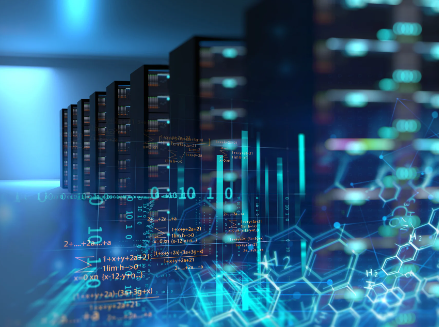Today we discuss What is Information Technology? The use of computer systems, software, networks, and other electronic devices to store, process, transmit, and retrieve information is referred to as information technology. It includes a wide range of tools and methods that make data handling efficient and eases communication and decision-making.
2. Information technology evolution
Over time, iT has seen substantial change. It first concentrated on using simple computing tools to automate manual tasks. Hardware, software, and networking improvements have converted IT into a potent engine that propels innovation and development across a range of businesses.
3. IT components
Hardware, software, networks, and data are some of the main parts of information technology. Computers, servers, and mobile devices are examples of physical objects referred to as hardware. Programs, apps, and operating systems that enable particular functions are collectively referred to as software. Data is the information that IT systems process and store, whereas networks enable the connection and communication between devices.
4. Information technology applications
Information technology is used in many different industries to improve accessibility, production, and efficiency. Let’s look at a few of the important areas where IT is essential.
5. The Business Use of Information Technology
IT helps businesses in the business world to streamline processes, better decision-making, and improve consumer experiences. IT systems make it easier to handle data, communicate, conduct financial transactions, and manage the supply chain, which boosts productivity and competitiveness.
Technology in Education, Number Six
Information technology has a huge positive impact on the education sector. It gives instructors and students access to a wealth of materials, interactive instructional methods, and online learning environments. Information technology improves education and makes it possible for individualized instruction.
7. Healthcare Information Technology
Electronic medical records, telemedicine, and diagnostic tools are just a few of the innovations in healthcare delivery brought about by information technology. IT systems improve patient care, support remote healthcare services, enable efficient data analysis, and facilitate medical research, ultimately leading to better health outcomes.
8. Information and Communication Technology
It has drastically changed how people communicate. Email, instant messaging, video conferencing, and social media platforms have revolutionized the way people connect and interact. Information technology enables fast, efficient, and global communication, bridging geographical boundaries.
9. IT in Entertainment
The entertainment industry relies heavily on information technology for content creation, distribution, and consumption. From streaming services to digital platforms and immersive experiences, IT has transformed how we entertain ourselves, making content more accessible and interactive.
10. Cybersecurity and IT
With the increasing reliance on information technology, the need for robust cybersecurity measures has become paramount. As technology advances, so do the threats and vulnerabilities associated with it. Cybersecurity focuses on protecting IT systems, networks, and data from unauthorized access, breaches, and cyber-attacks. It involves implementing firewalls, encryption, authentication protocols, and other security measures to safeguard sensitive information.
11. Ethical Considerations in IT
it continues to shape our world, ethical considerations come into play. The responsible and ethical use of technology involves addressing issues such as privacy, data protection, intellectual property rights, and the digital divide. Ethical frameworks guide the development, implementation, and usage of IT to ensure its positive impact on individuals, society, and the environment.
12. Future Trends
This field is constantly evolving, and it is crucial to stay informed about emerging trends. Some of the exciting developments on the horizon include artificial intelligence (AI) and machine learning, the Internet of Things (IoT), big data analytics, cloud computing, and virtual reality (VR). These advancements have the potential to reshape industries, improve efficiency, and create new possibilities for innovation.
13. Conclusion
In conclusion, iT has revolutionized the way we live, work, and communicate. Its widespread applications in various sectors have transformed industries, improved efficiency, and enriched our lives. From business operations to education, healthcare, communication, and entertainment, information technology plays a pivotal role in driving progress and enabling innovation. However, it is essential to address ethical considerations and prioritize cybersecurity to ensure the responsible and secure use of technology.
Some emerging trends in iT security include biometric authentication, blockchain technology, zero-trust architecture, and advanced threat detection systems, which aim to enhance cybersecurity and protect against evolving threats.
In this article, we explored the vast realm of iT , its applications, and its impact on society. So it continues to shape our world, and its potential for further innovation and progress is immense. By embracing its benefits while addressing ethical considerations and cybersecurity.
More Learn cybersecurity


